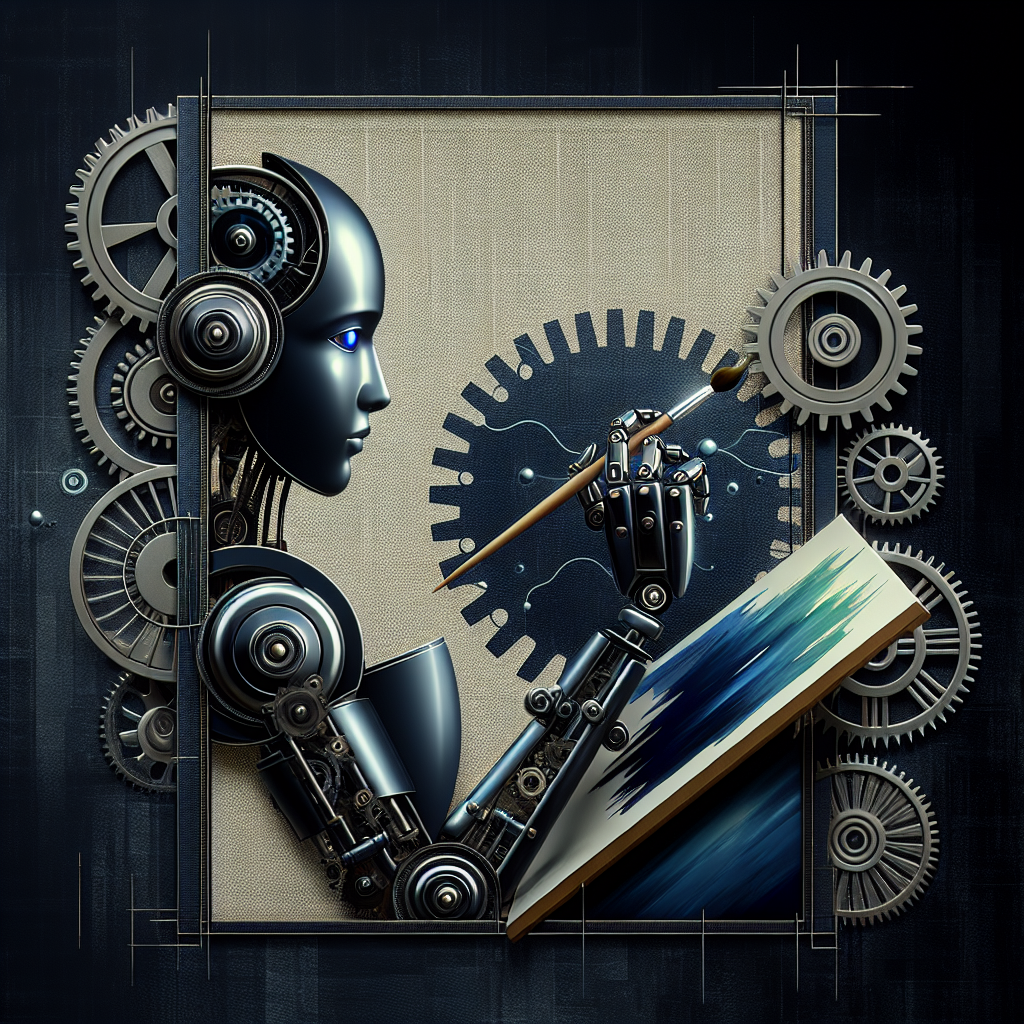Artificial Intelligence (AI) has been making waves across various industries for its ability to streamline processes, increase efficiency, and drive innovation. One area where AI is really pushing the limits of innovation is in the realm of creativity. Traditionally, creativity has been seen as a uniquely human trait, but AI is challenging that notion by generating music, art, writing, and other creative works that rival those produced by humans. In this article, we will explore how AI is revolutionizing creativity, the potential implications of this technology, and address some frequently asked questions about AI and creativity.
AI and Creativity: An Overview
AI has the ability to analyze vast amounts of data, recognize patterns, and generate new ideas. This makes it a powerful tool for creative endeavors. In the realm of music, AI has been used to compose original pieces that are indistinguishable from those written by humans. For example, the AI-powered music platform Amper Music allows users to create custom music tracks in minutes, without any prior musical knowledge.
In the world of art, AI has been used to create stunning visual works. The AI artist Aiva, for example, creates unique paintings based on the style of famous artists like Van Gogh and Picasso. AI has also been used to generate realistic images, such as those produced by the AI-powered image generator DeepDream.
In the field of writing, AI has been used to generate news articles, essays, and even fiction. The AI writing platform GPT-3 has gained attention for its ability to produce coherent and engaging text on a wide range of topics. Some AI-generated articles have even been published in major publications like The Guardian.
AI is also being used in other creative fields, such as design, architecture, and fashion. For example, AI-powered design tools like Canva and Adobe Sensei help designers create visually appealing graphics and layouts. AI is also being used to generate innovative architectural designs and predict future fashion trends.
The Potential Implications of AI and Creativity
While AI has the potential to revolutionize creativity, there are also concerns about its impact on society. One major concern is the displacement of human workers in creative industries. As AI becomes more advanced, it could potentially replace human writers, artists, musicians, and other creative professionals. This could lead to job losses and economic instability in these industries.
Another concern is the ethical implications of AI-generated content. For example, there have been cases where AI-generated fake news articles have been used to spread misinformation. There are also concerns about copyright issues, as AI-generated works raise questions about who owns the rights to the content.
Additionally, there are concerns about the impact of AI on the quality of creative works. While AI can generate impressive pieces of music, art, and writing, some argue that these works lack the emotional depth and authenticity that comes from human creativity. There is also a fear that reliance on AI could stifle true innovation and originality in the creative process.
Despite these concerns, many experts believe that AI has the potential to enhance human creativity rather than replace it. By automating repetitive tasks and providing inspiration and new ideas, AI can free up human creators to focus on more complex and meaningful aspects of their work. AI can also help democratize creativity by giving people from diverse backgrounds and skill levels the tools to create and express themselves.
FAQs about AI and Creativity
Q: Can AI really be creative?
A: While AI is not capable of experiencing emotions or having original thoughts like humans do, it can simulate creativity by generating new and innovative ideas based on patterns in data. AI can produce creative works that are indistinguishable from those created by humans, leading many to consider it a form of creativity.
Q: Will AI replace human creatives?
A: While AI has the potential to automate certain tasks in creative industries, it is unlikely to replace human creatives entirely. AI can assist human creators by providing inspiration, generating ideas, and streamlining processes, but human creativity will always be valued for its emotional depth, originality, and authenticity.
Q: What are the benefits of AI in creativity?
A: AI can enhance creativity by automating repetitive tasks, providing inspiration and new ideas, and increasing efficiency. AI can help creators overcome creative blocks, explore new styles and techniques, and reach a wider audience with their work. AI can also democratize creativity by giving people from diverse backgrounds the tools to create and express themselves.
Q: What are the ethical concerns of AI in creativity?
A: There are concerns about the displacement of human workers in creative industries, the ethical implications of AI-generated content, and the impact of AI on the quality of creative works. There are also concerns about copyright issues and the potential for AI to be used for malicious purposes, such as spreading misinformation.
In conclusion, AI is pushing the limits of innovation in creativity by generating music, art, writing, and other creative works that rival those produced by humans. While there are concerns about the impact of AI on society, many experts believe that AI has the potential to enhance human creativity rather than replace it. By automating tasks, providing inspiration, and streamlining processes, AI can empower human creators to push the boundaries of their creativity and produce truly groundbreaking works.

